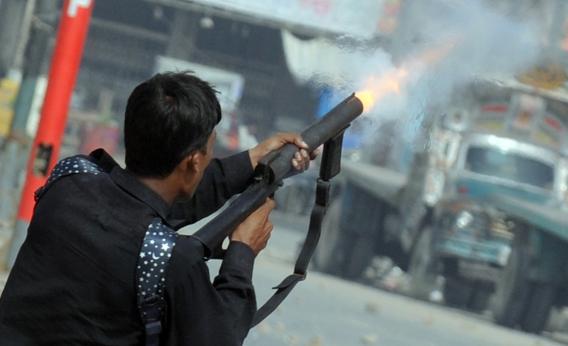This week is starting much like the last one ended, with continuing violent demonstrations at U.S. missions in the Muslim world.
Reuters with the details from the ground:
Protesters in Afghanistan and Indonesia burnt U.S. flags and chanted “Death to America” on Monday in renewed demonstrations over a film mocking the Prophet Mohammad that has unleashed a wave of anti-Western sentiment in the Muslim and Arab world. Indonesian police fired teargas and water cannon to disperse hundreds of demonstrators who massed outside the U.S. Embassy in Jakarta, capital of the most populous Muslim nation. In Kabul, thousands of protesters took to the streets, setting fire to cars and shops and throwing stones at police.
Although Innocence of Muslims, the obscure anti-Islam film that portrays Mohammed as a pedophile-appeasing, bumbling spreader of false doctrine, has been widely cited as the spark that ignited the ongoing protests, there is not unsurprisingly much more at play here.
The New York Times provides the closer reading:
When the protests … exploded in about 20 countries, the source of the rage was more than just religious sensitivity, political demagogy or resentment of Washington, protesters and their sympathizers here said. It was also a demand that many of them described with the word “freedom,” although in a context very different from the term’s use in the individualistic West: the right of a community, whether Muslim, Christian or Jewish, to be free from grave insult to its identity and values.
That demand, in turn, was swept up in the colliding crosscurrents of regional politics. From one side came the gale of anger at America’s decade-old war against terrorism, which in the eyes of many Muslims in the region often looks like a war against them. And from the other, the new winds blowing through the region in the aftermath of the Arab Spring, which to many here means most of all a right to demand respect for the popular will.
You can read the full Times piece here. It’s worth your time.
